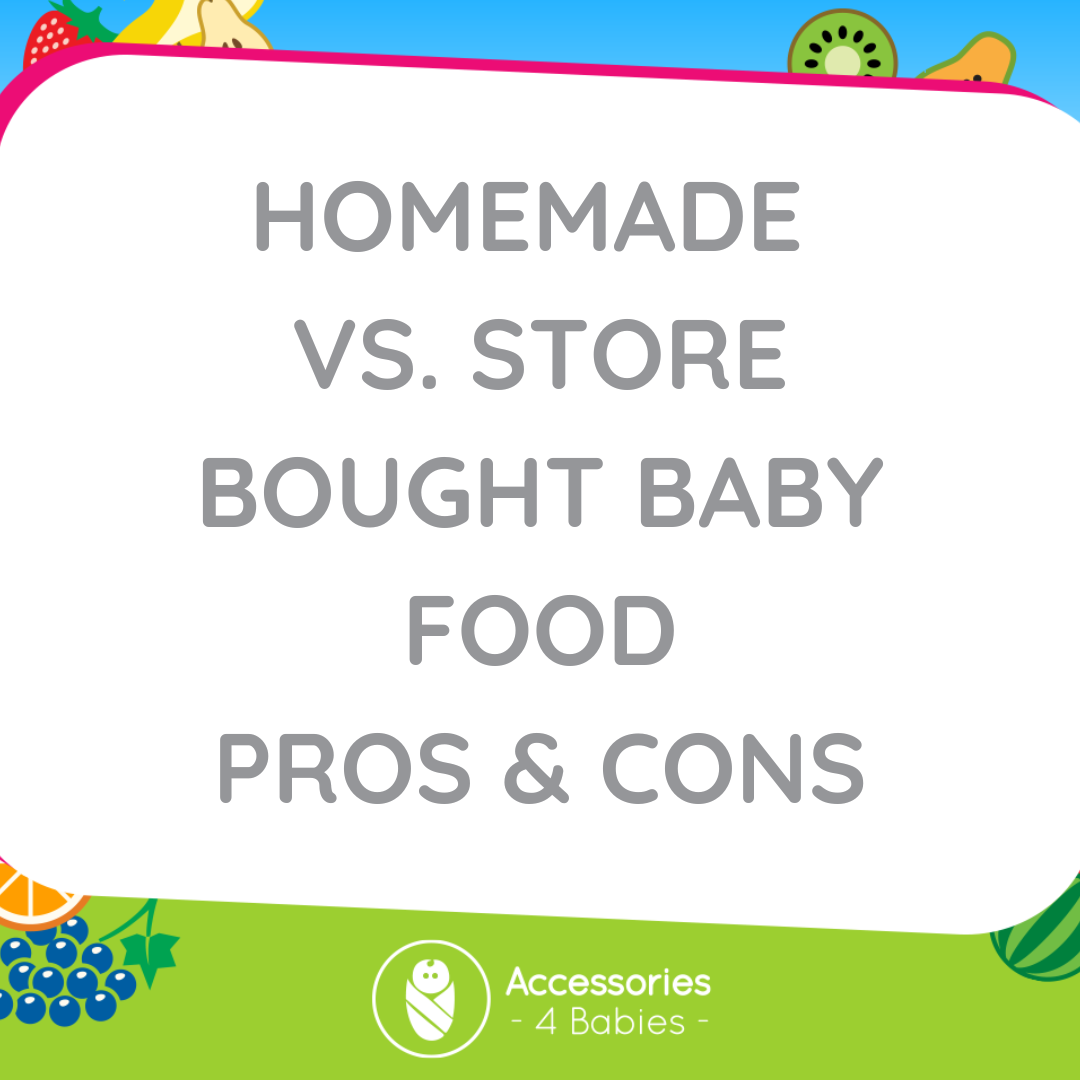
Homemade vs. Store-Bought Baby Food: Pros and Cons
Homemade vs. Store-Bought Baby Food: Pros and Cons”
When it comes to feeding your baby, the choice between homemade and store-bought baby food is a common consideration. In this blog post, we’ll explore the advantages and drawbacks of both options to help you make an informed decision that aligns with your baby’s nutritional needs and your lifestyle.
Homemade Baby Food:
Pros:
Ingredient Control: You have full control over the quality and types of ingredients used, ensuring your baby gets fresh and wholesome foods.
Nutrient Density: Homemade options often retain more nutrients due to minimal processing and shorter storage times.
Variety: You can introduce a wider range of flavors and textures, fostering diverse taste preferences early on.
Customization: Tailor recipes to your baby’s needs, such as accommodating allergies, avoiding additives, and catering to cultural preferences.
Cost Savings: Preparing your baby’s food at home can be more budget-friendly in the long run.
Cons:
Time-Consuming: Making baby food from scratch requires time for preparation, cooking, and pureeing.
Storage and Convenience: Homemade baby food needs to be stored properly and used promptly to maintain freshness.
Skill and Knowledge: Some cooking skills and knowledge of age-appropriate foods are necessary to create balanced meals.
Store-Bought Baby Food:
Pros:
Convenience: Ready-made options are quick and convenient, especially when you’re on the go or short on time.
Portion Control: Pre-packaged portions eliminate the need for measuring and ensure consistent serving sizes.
Safety and Quality: Reputable baby food brands adhere to safety and quality standards, providing peace of mind.
Variety: A wide array of flavors and combinations are available, introducing your baby to diverse tastes.
Time-Saving: No preparation or cooking is required; simply open and serve.
Cons:
Limited Ingredient Control: Store-bought options may contain additives, preservatives, or excess sugar, which can be less optimal for your baby’s nutrition.
Cost: While initially convenient, store-bought baby food can become more expensive over time.
Texture and Freshness: Some store-bought options might lack the textures and freshness of homemade alternatives.
Taste Development: Depending solely on store-bought food might limit your baby’s exposure to homemade flavors and family meals.
Finding a Balance:
Hybrid Approach: Many parents opt for a mix of both options, using store-bought food for convenience and homemade food for specific nutritional needs and variety.
Reading Labels: When choosing store-bought options, read labels carefully to select products with minimal additives and preservatives.
Conclusion:
Both homemade and store-bought baby food have their merits. Your decision should be based on your family’s preferences, time availability, and your desire to provide your baby with a balance of convenience and nutrition. Whichever path you choose, your baby’s health and well-being are at the forefront of your decision-making.

Stockists





